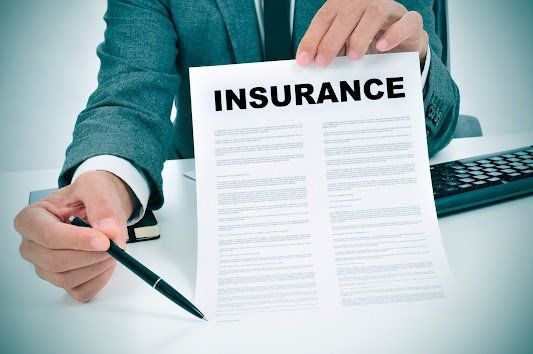What You Need to Know About Insurance Bad Faith

Has an insurance company refused to pay your claim after an accident or injury? Are they unwilling to engage in meaningful settlement negotiations? If so, you may have a case for a bad faith insurance case. But before you can or should embark on this sometimes necessary legal case, you first need to understand more about how it works. To help you do that, read on to learn about a few key points.
1. What Is and Isn't Insurance Bad Faith?
The term bad faith is actually a very strong one. This means that it must be used correctly and you must meet a somewhat high standard of proof that it's occurring.
The first thing to know is that not every difference of opinion between you and the insurance carrier is bad faith. If the insurance company values your injuries at a much lower amount than your own calculations, this doesn't necessarily mean they aren't honestly attempting to settle the case. If they provide some details about how the value was reached, for instance, they've made a good-faith effort.
Bad faith actions, in contrast, often have either no provided reasoning or erroneous reasoning. The most common categories that insurance bad faith falls into are when benefits are withheld, although being due under the policy, or when unreasonable reasons for withholding are provided.
2. What Does Bad Faith Look Like?
If not every tactic constitutes bad faith, what should you look for to identify when it really does happen? Some examples of bad faith include the following.
The carrier may not fully investigate your claim. For example, they may apply a blanket denial of a certain medical procedure or treatment — particularly based on outdated reasoning or failure to consider your specific circumstances. Or the company might not investigate the facts you have provided to them. This may also be apparent if they fail even to acknowledge the claim or provide reasons for any decisions.
Another situation occurs when the company creates unwarranted delays. While the claims process does take time to work through all its steps, the company cannot simply drag its feet in order to delay payment or wear down the insured. These delays might take the form of requesting the same documentation multiple times, unexplained waits between steps, lost paperwork, or irrelevant requests.
Retroactive cancellations happen when the insurance company analyzes your policy and payments when you try to make a claim. They often go back and look through every payment and every detail in the policy to find an excuse to cancel your coverage. If the reason for cancellation and denial isn't valid or reasonable, you may have a case for bad faith.
3. The Difference Between First and Third Parties
Are you dealing with bad faith from a first-party insurer or a third-party one? The difference between these can be important to the success of your case. As the named insured under a policy you purchased, you are the client in a contract. As part of that contract, your insurance carrier has a responsibility to provide the services they agreed to. This makes it much easier to demonstrate bad faith when they breach this duty.
If you put in a claim against someone else's insurance, though, your burden of proof for bad faith actions is higher. The insurance company agreed to work in the interests of their client, which is not you. So you may need to show more outright fraud, clear lies, misrepresentations, or unlawful acts in order to win the case.
4. An Attorney Is Your Best Resource
Clearly, what constitutes good faith actions and bad faith actions is complicated. Insurance companies are motivated to try anything to lower their costs, but they're also good at camouflaging these efforts. Most laypersons may not recognize the signs of truly bad faith moves.
For this reason, you should consult an attorney as soon as you suspect bad faith actions. While a victim can often bring up accusations of insurance bad faith with the carrier — in oral or written form — they need to have a solid case supporting this serious claim. Because things like the difference between a reasonable delay and an unreasonable one can be subtle, the company can counter your accusation if you aren't familiar with the law.
Where to Start
For an accident victim, insurance bad faith is not only hard to recognize and correct, but it also delays the money and treatment you need to recover during a difficult time. So don't delay even if you just have questions and concerns about your insurance company.
Start by consulting with the personal injury professionals at Jeeves Law Group, P.A.
With more than 75 years of combined experience, we've assisted Florida residents and victims in working with insurance carriers, removing obstacles of all kinds, and pursuing a successful resolution to their claims. Call today to make an appointment and find answers to your questions.


